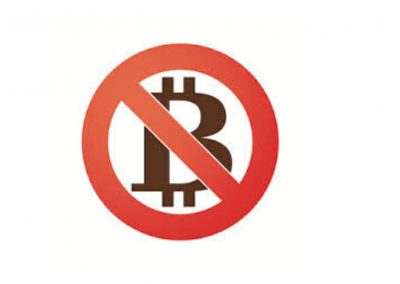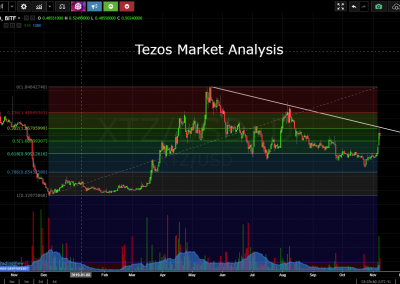What Is a Privacy Coin?
One common thread about Bitcoin in the media is that it is a privacy coin. This faux sense of privacy has been believed by many in the past because of the public key.
Many cryptocurrencies use public keys that are a complex alphanumeric collection of characters designed to designate a specific address allowing other users to deposit funds into that wallet.
However, that hardly makes a cryptocurrency private. Bitcoin is traceable with enough effort. If you want to push the boundaries of anonymity, then you want to choose a truly private coin.
But before you do that, it helps to understand how these coins ensure users’ transactions remain private while protecting their anonymity.
How do Privacy Coins Stay Private?
The main problem with keeping coins private is that blockchain functions on a public ledger. Transactions between parties are verified and recorded onto that ledger. This is how cryptocurrencies achieve consensus.
What privacy coins attempt to do is to make tracing transactions on the blockchain complicated. The more difficult they can make tracking the exchange of money, the greater chance that coin has of remaining private.
There are many ways privacy coins accomplish this. They can hide the ledger to prevent observers from seeing the transaction history.
They can burn incoming coins through fungible processes that create new, untraceable coins.
There also exists coins that swap coins with multiple other parties to help mix up the transaction trail. And some of these coins create new public keys with each transaction to help distort the trail.
Popular Privacy Coins on the Market:
Why Would You Want Transactions to Stay Private?
The first thought that jumps into most people’s head when you support private coins is that you’re want to do something illegal.
There’s no doubt that people use private cryptocurrencies for illegal activities. People also regularly use fiat money for illegal activities.
We don’t throw away all of our currency though, do we?
Privacy coins go way beyond that fractional value to the dark markets. Privacy matters. It is a fundamental tenet of humanity, of human decency, and private cryptos support that.
One primary reason for cryptocurrencies existence is for pulling away power from centralized institutions.
There is a legitimate fear in governments and institutions knowing too much. Just look at the recent issues with Facebook and their ability to mine and sell users’ information.
In a situation like that, we don’t want our information in the hands of organizations that have no right to it. Even if we’ve done nothing wrong, it’s still our information that we want to keep to ourselves.
Let’s look at a potential hypothetical. If you spend $120 of Monero at someplace as innocuous as Starbucks, and the company can see where you’re spending your money, then it is feasible that they’ll start targeting you for ads to increase your spending there.
Perfectly okay if you love their coffee and are in the mood for it, but that’s not always the case. It can feel downright creepy to be targeted with ads based on recent browser searches alone.
When you add into companies peering through your entire transaction history to see what you’ve been up to, it’s even more unsettling.
Private coins provide a solution. What if you want to give to a political donation, but don’t want to broadcast your political affiliations? Or a charity that might align with values that contradict those of your company or coworkers?
What if you buy something sexy for your significant other? For yourself? Does anyone want people to be able to trace what kind of underwear you prefer?
What stores do you shop at? How often you eat out at restaurants? None of this information is anyone else’s but your own.
And it’s not just individuals, but businesses need privacy too. This helps protect the integrity of deals made between parties. Completely open ledgers for companies would affect trading or even the ability to form deals with other companies who can easily search through your company’s transaction history.
How Private Are They?
No private coin is 100 percent private. There are tradeoffs to each one. And like all forms of technology, it’s a working progress. What works today, might not be effective tomorrow. These companies have to continuously work at perfecting their privacy measures to protect the users of their platforms.
That’s one big problem with privacy and cryptocurrencies, every transaction exists on the ledger, and that ledger is permanent. This means that these companies have to continuously work to make sure their coins stay private to ensure that that ledger stays private.
If they fail at that, then that information can go public, and once it’s out there, it’s out there.
How Will Regulations Affect Private Cryptos
The real question behind private cryptos is whether or not governments will regulate them into obscurity.
Japan recently banned private cryptos. The main reason behind this is that the governments aren’t fond of privacy.
When hackers stole over $400 million in crypto from a market in Japan this year, authorities had a tough time tracking it due to the measures these private cryptos use.
Simply put, with something that obtrusive in the path of government power, it’s not hard to see other countries following suit. This creates problems because it forces individuals of that country to use transparent alternatives.
Why Privacy Matters
Private cryptos illustrate humanities desire to remain anonymous. We relate privacy to human decency. We want it in our homes. We want it in our interactions with others. We want it through our commerce.
And with technology becoming more and more relevant to our lives every day, it becomes increasingly harder to hold onto some of that privacy.
Private cryptos give those people who know they have a right to privacy a way to feel safe in a world where interactions are broadcast into permanence on the internet where major organizations can continuously sweep up information and use it to intrude into our lives.











